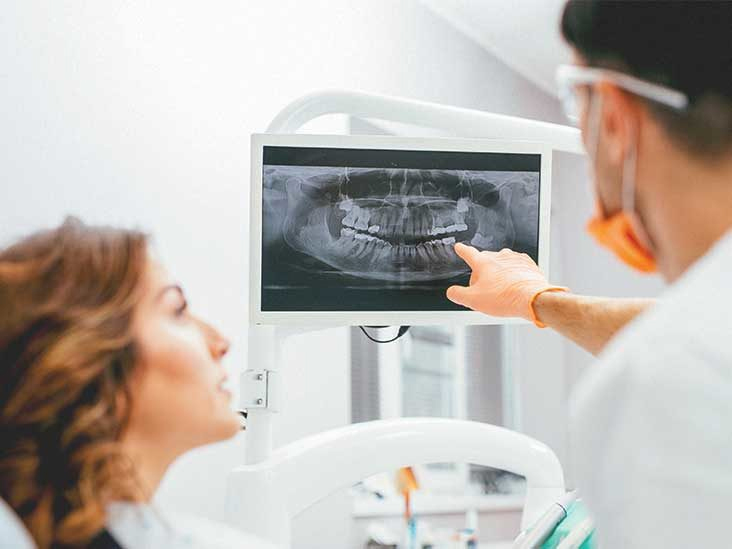Dental crowns are tooth-shaped “caps” that can be placed over your tooth. Think of it like a snug hat for your tooth. The crown restores the tooth’s shape, size, strength and appearance. Over time, your teeth can get damaged. This can happen for a variety of reasons, like tooth decay, injuries or just use over time. Your teeth can lose their shape or size.
The dental crown is cemented into place on your tooth and it covers the visible portion of the tooth.
You may need a dental crown for several reasons, including:
You will typically have two visits to the dentist to prepare for a dental crown.

During the first visit, the tooth that’s going to receive the crown is examined and prepared. X-rays are taken of the tooth and the bone around it. Your dentist might have to do a root canal treatment before your dental crown procedure if there’s any: Tooth decay, Risk of infection or Injury to the tooth’s pulp.
The tooth that’s receiving the crown will be filed down across the top and sides. This will make space for the crown itself. The amount of tooth that gets filed away depends on the type of crown you have.
After reshaping the tooth, we take a digital impression of the tooth that’s going to receive the crown.
The digital impressions are sent to a dental laboratory. The laboratory makes the crowns and usually returns them to the dentist’s office in two to three weeks. During this first office visit, your dentist will make a temporary crown to cover and protect the prepared tooth while you’re waiting on the permanent crown.
First, the temporary crown is removed and the fit and colour of the permanent crown are checked. If everything is okay, a local anaesthetic (“numbing” drug) is sometimes used to numb the tooth and the new crown is permanently cemented in place.
A crowned tooth doesn’t need any special care. However, the underlying tooth still needs to be protected from decay or gum disease. Because of this, you should continue to follow good oral hygiene practices. These practices include brushing your teeth twice a day and flossing once a day — especially around the crown area where the gum meets your tooth. Also, avoid biting on hard surfaces with porcelain crowns (for example, chewing ice or popcorn hulls) to prevent cracking the porcelain.
At Waterside Dental Practice, we provide a wide range of cosmetic treatment including composite bonding, adult braces/Invisalign, Implant, Crown, Veneers, teeth whitening and more.
Our team is always on hand to provide the very best advice when it comes to restoring your smile and advising you on the best options for your teeth.
Waterside Dental Practice
40 Langdown Lawn
Hythe
Southampton
SO45 5GR
Fields with (*) are required.
Please contact us via this website or email without disclosing confidential information.